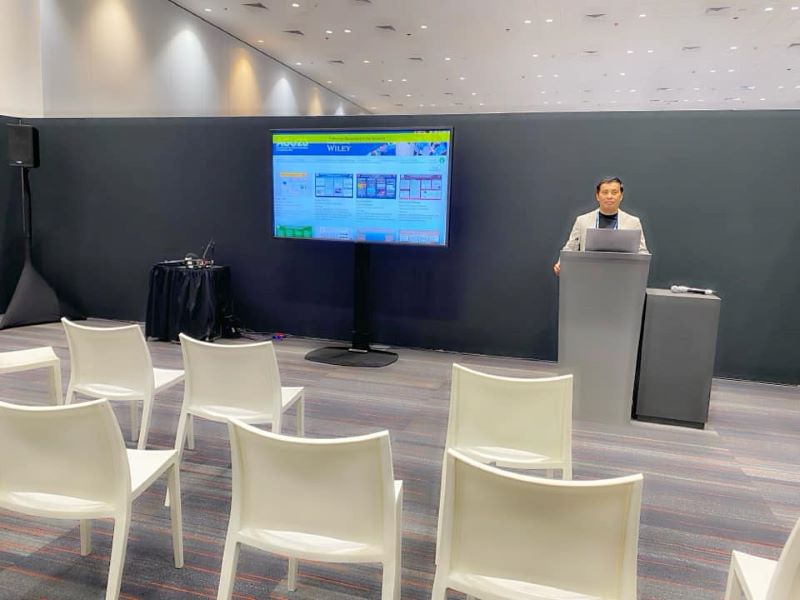
Landing a college scholarship abroad can be a life-changing opportunity, but often, the scholarship process doesn’t end with just an application. Many international scholarships require an interview to determine if you’re the right candidate. If you’re a high school student in the Philippines looking to make a strong impression, here’s how to prepare for and pass that critical interview stage.
1. Understand the Scholarship’s Purpose and Requirements
Each scholarship has its own mission and values, often aimed at supporting students in specific fields, fostering cultural exchange, or encouraging leadership. Research the scholarship thoroughly, including:
- The organization or university offering the scholarship, especially its goals and mission.
- The types of candidates they seek, such as students with strong academic performance, leadership potential, or financial need.
- The fields of study or skills they prioritize, as well as any specific qualities they value in their scholars.
Tip: If it’s a government scholarship, understand that they may expect you to contribute to your home country upon your return. Mentioning how you’ll apply your knowledge back in the Philippines can be a strong point.
2. Prepare Answers to Common Scholarship Interview Questions
While each interview will be unique, certain questions tend to appear in almost every scholarship interview. Here are some common questions and tips on how to answer them:
- “Tell me about yourself.”
Craft a short, compelling summary that highlights your background, key achievements, and what makes you unique. Emphasize qualities that align with the scholarship’s values. - “Why did you choose this course and university?”
Explain your academic interests and how studying at that particular institution will help you achieve your goals. - “Why do you deserve this scholarship?”
Be honest and specific. Talk about your commitment to your studies, any challenges you’ve overcome, and why the scholarship is essential to your future. - “How will you use your degree to contribute to your community?”
Show your motivation to give back to the Philippines and discuss how you plan to use your skills and education for positive change. - “What are your strengths and weaknesses?”
Discuss strengths relevant to your studies and your goals. When mentioning weaknesses, frame them as areas for growth and mention how you’re working to improve.
Tip: Practice answering these questions out loud with friends, family, or a teacher. The goal is to be natural, not rehearsed.
3. Practice Behavioral Interview Techniques
Behavioral interview questions focus on how you’ve handled situations in the past. These questions often start with, “Tell me about a time when…” and are designed to reveal qualities like resilience, leadership, and adaptability. To answer these questions:
- Use the STAR Method: Structure your answer by explaining the Situation, Task, Action, and Result. For example:
- Situation: Describe the context of the experience.
- Task: Explain what needed to be done.
- Action: Detail the steps you took.
- Result: Highlight the outcome, especially if it had a positive impact.
Example Question: “Tell me about a time you faced a challenge and overcame it.”
- Situation: You faced a difficult math subject in school.
- Task: You needed to pass to maintain a high GPA.
- Action: You attended extra tutoring sessions and sought help from classmates.
- Result: You improved your grades and learned the importance of seeking support.
Tip: Choose examples that demonstrate qualities like leadership, persistence, and a commitment to learning—qualities that align well with scholarship ideals.
4. Prepare Questions to Ask the Interviewers
The interview isn’t only about them assessing you—it’s also your opportunity to show interest in the scholarship and program. Prepare a few thoughtful questions, such as:
- “What support systems are available for international students on campus?”
- “What qualities do successful scholars of this program tend to have?”
- “Are there opportunities for scholars to engage in community projects?”
Tip: Avoid asking questions with answers that are easily found on the scholarship website. Instead, ask questions that show genuine curiosity about your future experience.
5. Plan and Test Your Technology (for Virtual Interviews)
If your interview is virtual, make sure to prepare the technical aspects in advance:
- Internet Connection: Ensure your connection is stable to avoid any disruptions.
- Camera and Microphone: Test both and adjust lighting for a clear, well-lit view.
- Background and Noise: Choose a quiet, neutral location without distractions in the background.
Tip: If you don’t have a reliable internet connection at home, try to arrange a quiet space with strong Wi-Fi, like a friend’s house or a library.
6. Dress Professionally and Maintain Positive Body Language
Whether it’s an in-person or virtual interview, dressing professionally shows that you’re taking the interview seriously. For guys, a dress shirt and blazer are often suitable, while girls might choose a modest blouse or blazer.
Body language is also crucial—practice maintaining eye contact, sitting up straight, and smiling confidently. Positive body language conveys enthusiasm and attentiveness, which can help you make a strong impression.
Tip: Avoid fidgeting or looking at your phone. If you’re in a virtual interview, look directly into the camera to simulate eye contact with your interviewer.
7. Be Clear, Confident, and Concise
When answering questions, aim for clarity and conciseness. Avoid rambling or going off-topic. Scholarship interviewers appreciate candidates who can effectively communicate their thoughts. Here are some tips:
- Pause and think if you need a moment to collect your thoughts before answering.
- Stay on-topic by focusing on points that directly answer the question.
- Avoid jargon or complicated words; be straightforward and authentic.
Tip: Practicing mock interviews with friends, family, or teachers can help you get used to concise, clear communication.
8. Show Enthusiasm and Gratitude
Your enthusiasm for the opportunity can set you apart from other candidates. Show excitement about the scholarship, the university, and the chance to study abroad. Let your passion for learning and contributing to your community shine through.
At the end of the interview, thank the interviewers for their time and consideration. Expressing gratitude leaves a positive final impression.
Tip: A simple thank-you email after the interview is a polite gesture that also shows your professionalism.
9. Stay Calm and Manage Nerves
Nervousness is natural, but there are ways to calm your mind before and during the interview:
- Breathe deeply: Take a few deep breaths to relax.
- Visualize success: Picture yourself doing well, answering questions confidently.
- Focus on your preparation: Remind yourself of the hard work you’ve done to prepare.
Tip: Some nervousness can actually improve your performance by keeping you alert and focused. Don’t try to eliminate it completely; instead, focus on managing it.
10. Follow Up After the Interview
A short, polite follow-up email can remind the interviewers of your interest and professionalism. Keep it brief, thanking them again for the opportunity and expressing enthusiasm for the program.
Example:
“Dear [Interviewer’s Name],
Thank you for the opportunity to interview for the [Scholarship Name] scholarship. I appreciate the time you took to learn about my aspirations and experiences, and I am very excited about the possibility of contributing to the program. Please don’t hesitate to reach out if you need any further information.
Best regards,
[Your Name]”
Passing a college scholarship interview requires preparation, confidence, and a clear understanding of your goals. For Filipino high school students aspiring to study abroad, these interviews are not only an opportunity to secure financial support but also a chance to showcase your unique strengths, resilience, and dedication to making a difference.
Keep your purpose in mind, stay calm, and remember—you’ve worked hard to get here. Believe in yourself, and go make a lasting impression. Good luck!



